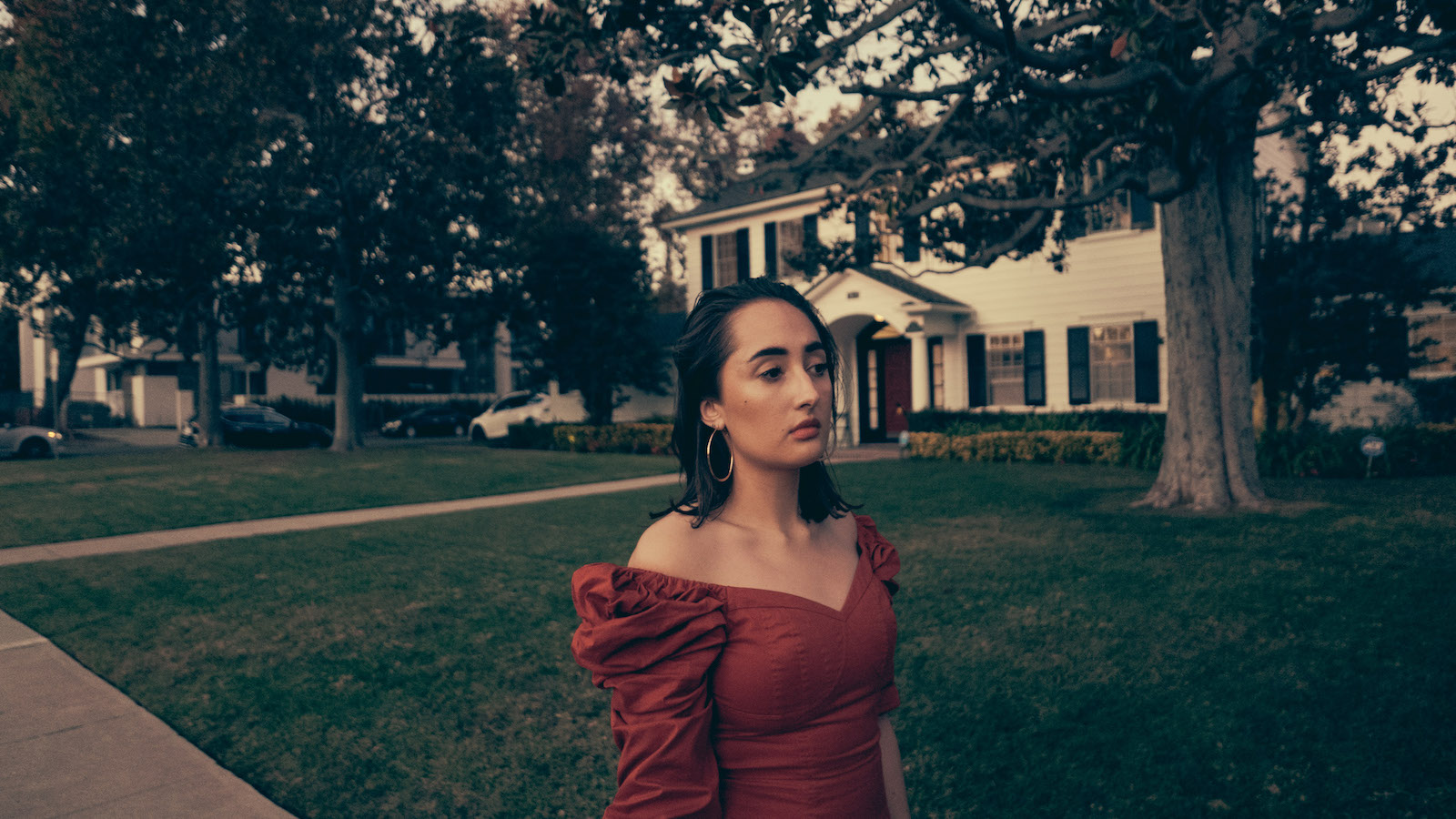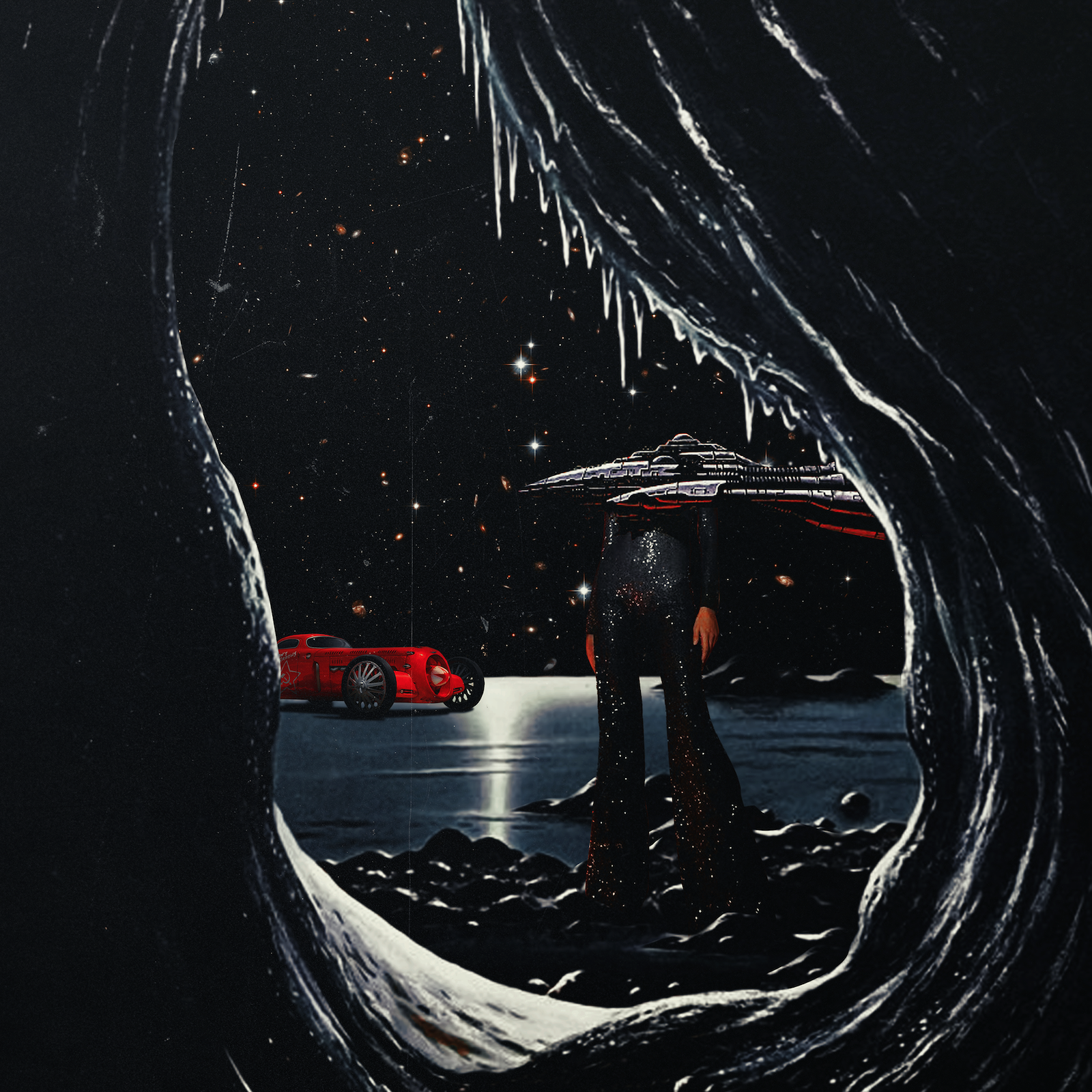 Photo by: Jonathan Frydman
Photo by: Jonathan Frydman
Esbie Fonte’s new song ‘Time Traveler’ is eclectically haunting, complex, and a beautiful commentary on the world today. The passionate tune transports you into a space where you might actually believe you can move through time, even if it’s only via your own imagination.
Esbie herself has a timeless quality to her aesthetic while maintaining to stay on trend at the same time. Her duality of mixing things that may not instinctively pair makes her intriguing lyrics and soft expressions stick in your mind like they always belonged there. ‘Time Traveler’ has a complex tone to match the complex politically charged climate we currently find ourselves in, which is a refreshing direction away from purely narrative song writing. While the song holds space for this more serious commentary – it still has a soothing energy to it that makes you feel like everything will eventually be okay.
“’Time Traveler’ explores an imaginary future in reaction to technological fixation, vanity, and human greed.” Esbie shared with us. “The chorus, ‘Don’t cry wolf’ is metaphorically responding to a crying and regretful society as the earth reaches destruction. History repeats itself, ‘Laughing gas and puddles of masks. Stevie Ray Vaughan and the shots that he asked’ nods to the self destructive nature of society, referencing masks needed for protection against unclean air, and shots referring to drug use. The final bridge of the song concludes by challenging and parting with the status quo.”
Her use of art to make a statement on the world today is a reminder that art is nothing more than a reflection of time, no matter if that “time” happens to be personal, political, or societal. Learn more about what drives Esbie Fonte to create, how she makes the world a better place, and the biggest lesson she recently learned below.
 Photo by: Jonathan Frydman
Photo by: Jonathan Frydman
What drives you to create and why music as an outlet?
I started writing songs as a child, and grew up surrounded by a diverse range of music that friends and family introduced me to that inspired me in different ways. My dad taught himself to play every string instrument except the harp. My sense of “home” has always revolved around music because of him. At a very young age I associated both community and intensely personal expression by way of music. When I was around four I thought I wanted to be a brain surgeon because it was something I saw on TV at a friends house, and while everyone was flinching I just thought it was crazy interesting. I always think of that moment because it was the last time music wasn’t the largest part of my life and identity. Since then I “announced” that I was a singer to my parents and started writing songs as a very little kid that are pretty funny to look at today. Sometimes I would write as an outlet to deal with pain, sometimes I would write as an expression of love. I can think of many times in my childhood that I started writing because I needed to, in both moments of positivity and negativity, and I’m still like that today – music has always just been it for me.
What is your perspective on music and arts’ role in politics?
Music is a universal language that can bring people of all walks of life together, that is so rad and powerful! Joan Baez, Joni Mitchell, and Joan Armatrading are some of my most beloved influences and all great examples of the role music plays in politics, all in unique ways. Throughout history, artists and creators have helped to mark what is going on politically in the world, from the most honest place.
 Photo by: Jonathan Frydman
Photo by: Jonathan Frydman
“Time Traveler” is such an interesting title/ concept. If you could go back to anytime for 48 hours what era would you go to and why?
Thank you! Aesthetically and musically, I love the 50’s and have always gravitated towards that decade since I was a kid. There is an elegance and class captured in that era through music, cinematography, and fashion that inspires me so much.
What does authenticity in music mean to you?
Tapping into the muse and letting it go.
If you could have anybody listen to your music who would it be?
Björk. Hands down!

What does empathy mean to you?
Being aware of your privilege, being proactive about creating safe spaces, lifting up and listening to voices that are silenced more than your own.
What is the biggest lesson that you have learned recently?
Listen more, talk less.
What do you do to make the world a better place?
There’s nothing I love more than to hear from people I’ve never met before that my music got them through a tough time. I think creating and connecting is so powerful and it’s definitely something the world could use more of right now.
What are your plans for 2020?
Enjoy life – creating new music, touring the US, and maybe cooking at home sometimes.
 Photo by: Chase Leonard
Photo by: Chase Leonard
CONNECT WITH ESBIE FONTE
INSTAGRAM // FACEBOOK // TWITTER
photos / Chase Leonard & Jonathan Frydman
story / Weslee Kate
